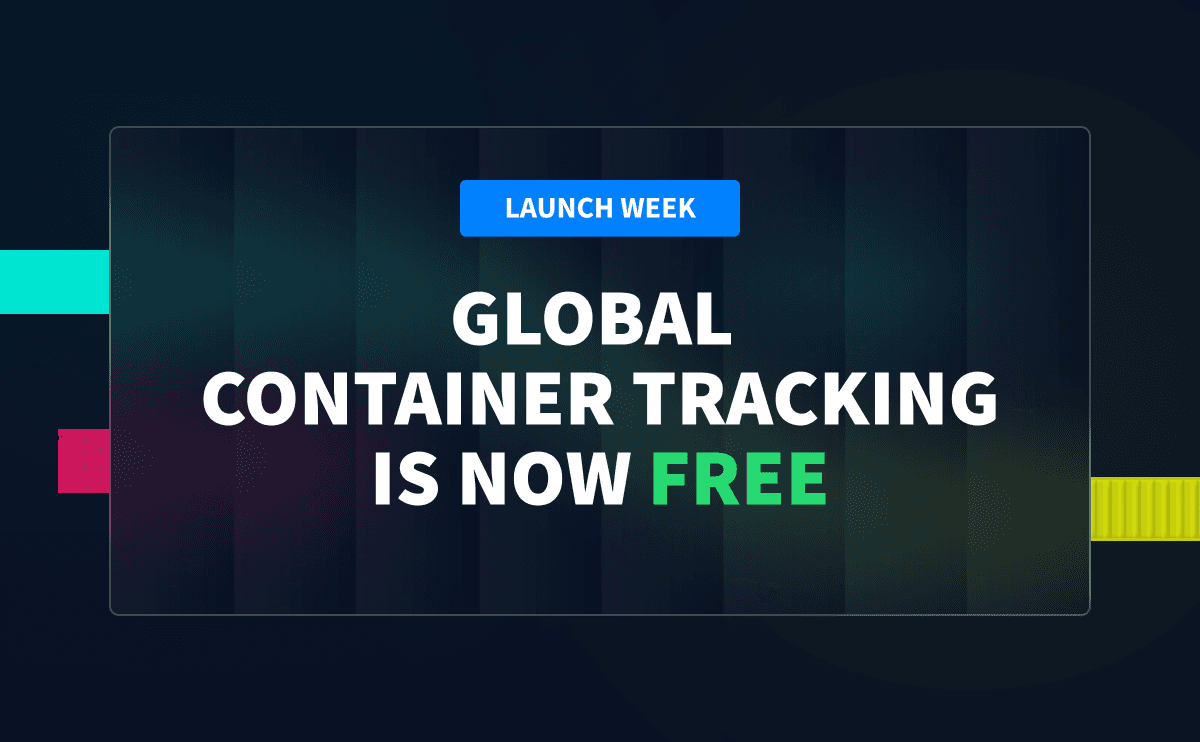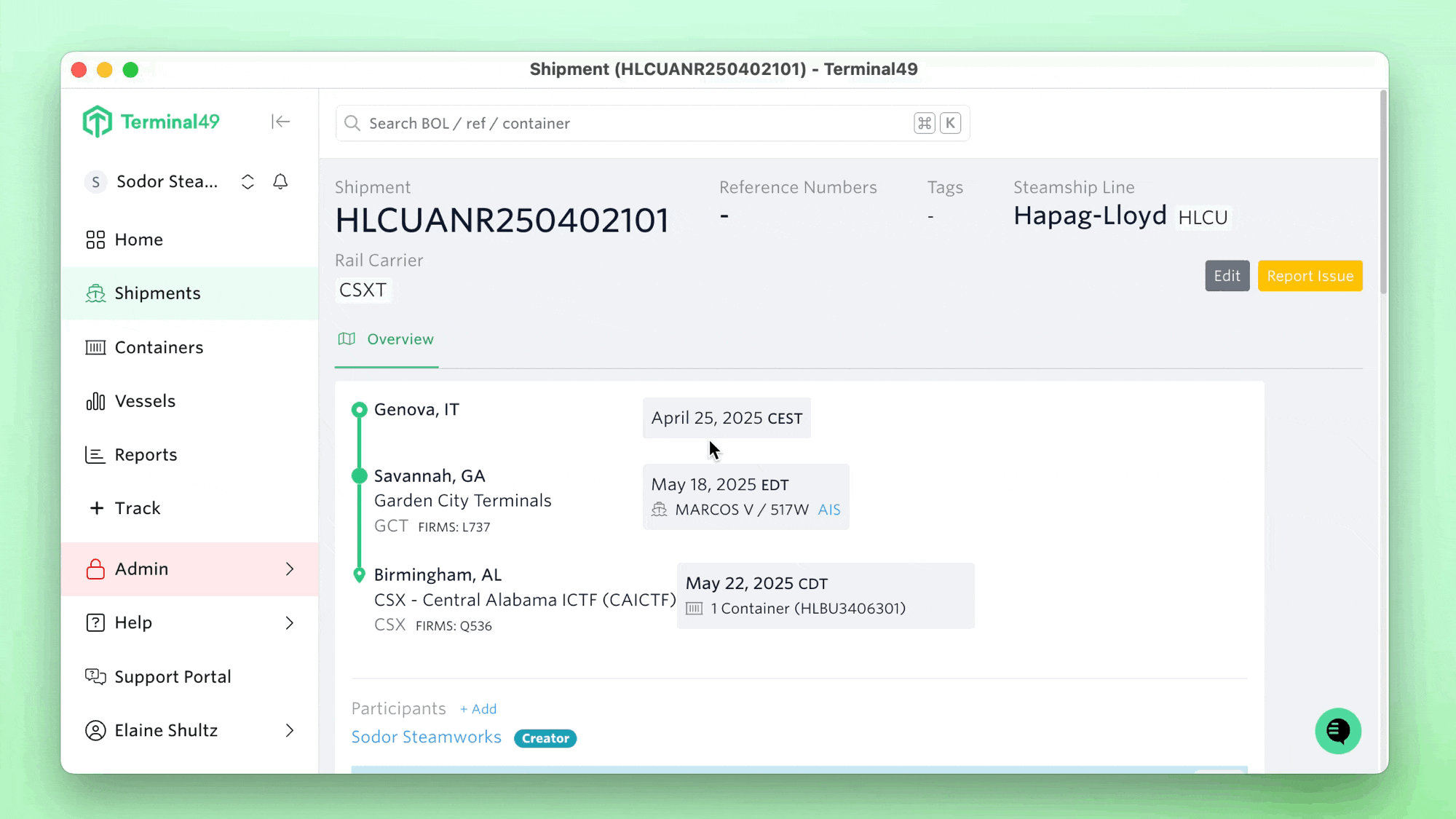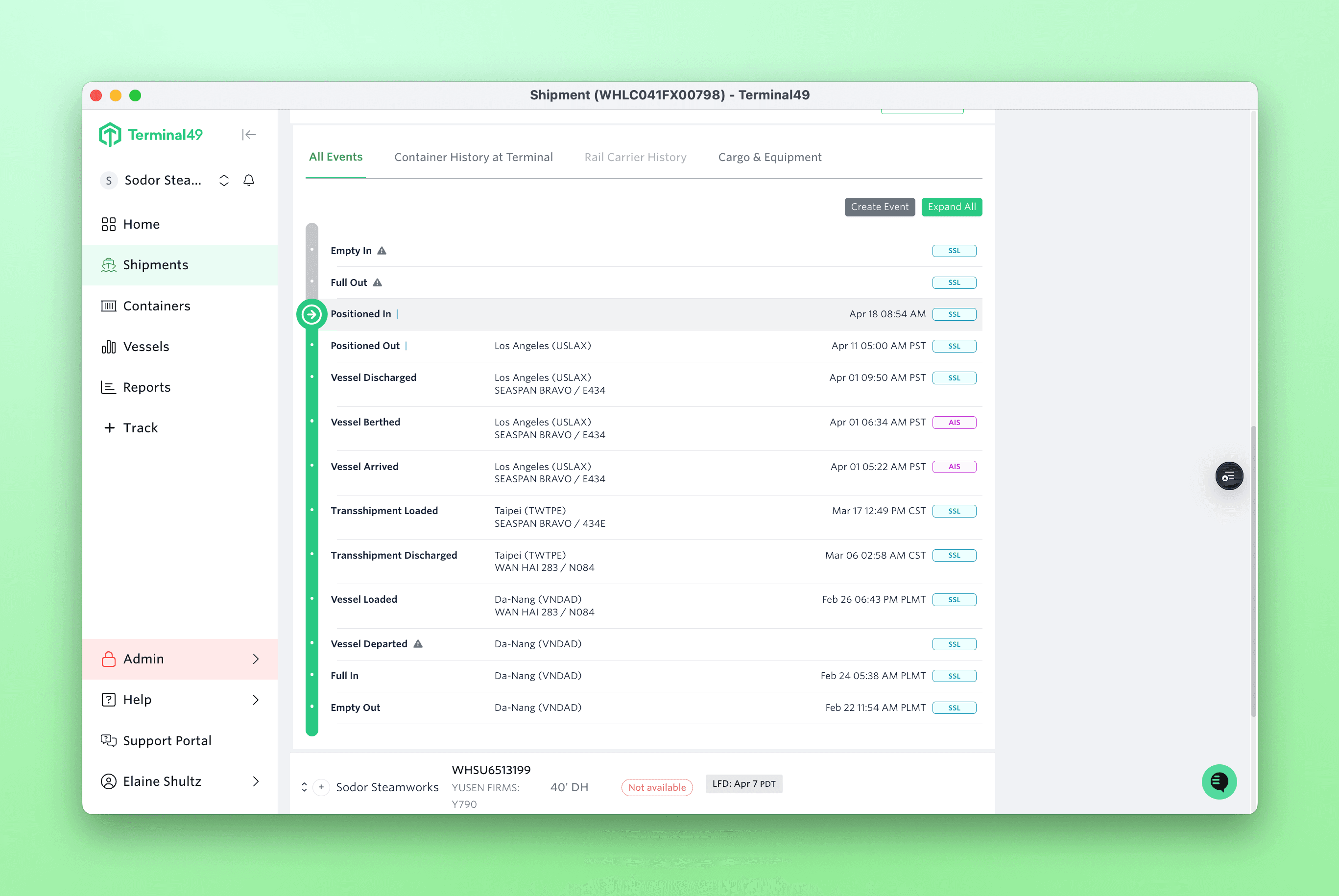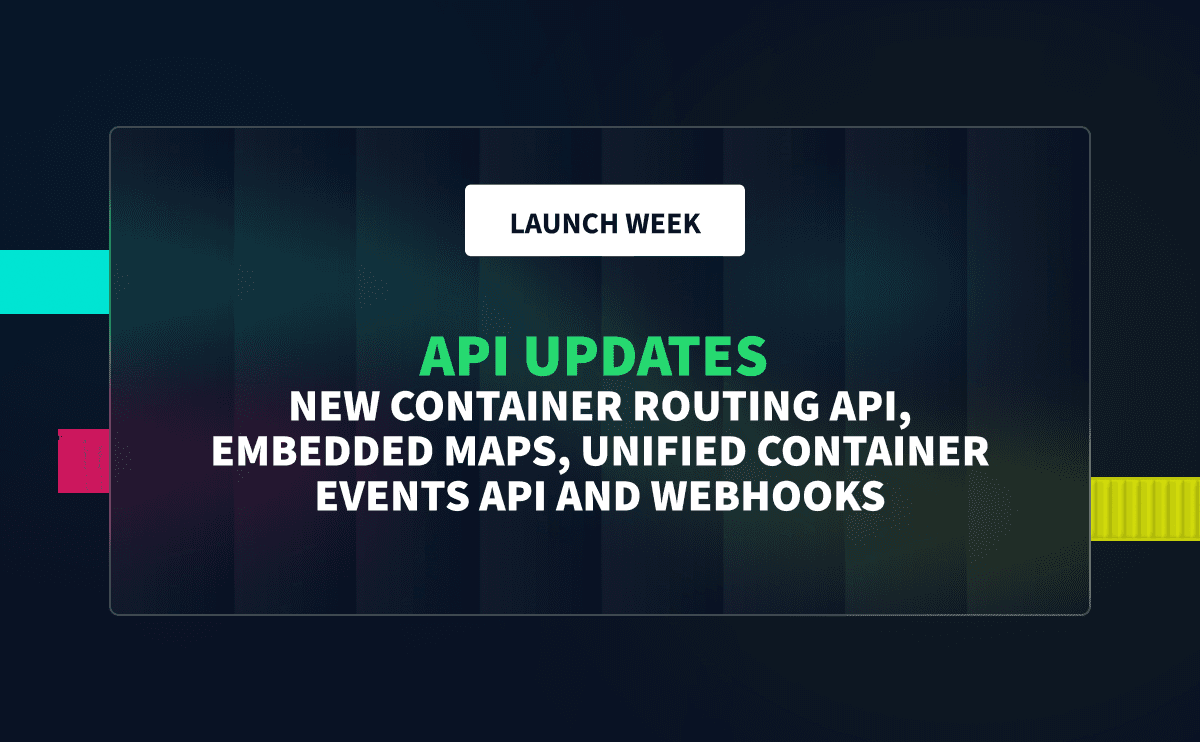Before modern supply chain management, visibility into the freight process was opaque at best, and in many cases, it could be days or weeks before cargo owners could get any shipment tracking update. This greatly slowed the process, and if shipments were lost in transit, it kept the businesses blindsided — and in limbo — for weeks or even months.
Fortunately, that is no longer true with modern-day logistics and supply chain operations. With technology, you can successfully track your shipments from source to destination, but more than that, you now have access to real-time information every step of the way. Shipment tracking has emerged as one of the most essential technologies in shipping operations across the world today.

However, an effective shipment tracking operation depends on the data quality you can access. Inaccurate or inconsistent data will ultimately mislead you and prompt wrong decisions or actions in the entire process. Imagine you are told that the shipment is still in transit, but the vessel is encountering an issue in the middle of the ocean. This wrong information will impede your ability to take action on time and could ultimately cause delays.
The critical nature of high data quality in shipment tracking cannot be over-emphasized. Staying on top of your game is important when considering the competition, emerging data quality challenges, and factors that could trigger delays across the ocean. In this article, we will be exploring why this is so.
The Impact of Data Quality on Shipment Tracking

It will be difficult to track any shipment successfully without a system that ensures data accuracy or effective data quality management. As we mentioned earlier, the risk of having conflicting information about the shipment abounds, and unfortunately, the stakes are too high. High-quality data will impact your shipment tracing operation in several ways, but we will explore five here.
1. Enhanced Visibility and Transparency
In today’s competitive and dynamic market, visibility and transparency are two core elements of maritime operations. As a shipper, you want to know where your goods are, the condition of the goods, how long they will take to go from source to destination, and, more importantly, you want real-time updates on the state and progress of the shipment.
These are the tenets of visibility and transparency in maritime operations. The primary strategy for achieving this is to implement a data profiling system that ensures high-quality data across the entire operation. When you are sure of the visibility and transparency of the shipping operation, it becomes so much easier to plan and put into motion other aspects of your supply chain operations.
2. Improved Decision Making
You will repeatedly be exposed to the decision-making process as a business operator or shipper. However, for your decisions to have any impact, they must be rooted in accurate and high-quality data. Imagine making a decision on something that happened an hour ago and has already been resolved. The waste of resources alone can eat into the profitability of the business.
With the right data quality metrics in your tracking process, you don’t have to worry about something like that happening. You will be confident in your decisions and avoid the trap of second-guessing yourself, which can be detrimental to any shipping operation.
3. Reduce Inefficiencies and Delays
High-quality data in the shipment tracking process allows you to spot and reduce or eliminate inefficiencies and delays in maritime operations. When exposed to high-quality data, optimizing routes and eliminating idle time in the entire operation becomes much more doable.
It allows you to be proactive in problem-solving, and in most logistics and supply chain operations (including maritime), it could be the difference between a full-blown disruption or a seamless process. Reducing delays in the shipping operation is key to activating on-time delivery, which is a must in today’s competitive climate.
4. Mitigating Risk and Ensuring Compliance
In 2024, global trade has been fraught with insecurities, but along with these insecurities are regulations and policies that aim to ensure key concepts like sustainability, trade systems, and fair competition are completely adhered to by all shippers and their partners (including third-party logistics providers and brokers).
With a robust data quality assessment framework, you can achieve a high level of data governance. This helps you properly navigate these regulations and stay compliant. Staying compliant will help you avoid penalties and disruptions to your supply chain management. It will also help you enjoy cost-effective shipping. Making data quality important and a must will also empower you to mitigate risks such as insecurities by tracking and avoiding dangerous regions or vessels that could impede the entire operation.
5. Better Customer Experience
Customer experience has evolved greatly over the years. A few years ago, customers made orders and received their goods without any knowledge of the shipping process. Today, the reverse is the case. Customers want to know where their goods are and how long it will take to get to them. They want to track their orders or goods every step of the way, with carriers bearing the brunt of calls and emails in the case of inaccurate or inconsistent data.
Good data quality in shipment tracking can alleviate that type of miscommunication between your business and the customer. Think about a shipper that has been waiting on their product. Then, because the freight arrives later than what the tracking platform stated or because of a logistics bottleneck, there’s a delay. On the flip side, the freight arrives earlier than anticipated, and they aren’t able to go get it. All these scenarios negatively impact the customer’s experience.
Data quality issues negatively impact the customer’s experience. The impact and resources that could go into fixing the issue could be astronomical if not contained and managed correctly. In a world fraught with tight margins and dependency on customer loyalty and reference, such mistakes may spell doom for a shipping or logistics business, especially when prolonged.
How to Ensure Data Quality in Shipment Tracking
Maintaining data quality in shipment tracking is possible, but you need the right tools and a platform like Terminal49 to get started. Here are some data quality management tools that Terminal 49 can provide you with consistent data integrity.
- Integration: At Terminal49, we integrate detailed shipment and container milestones from a wide range of sources, ensuring you have all the information you need when you need it.
- All-in-one dashboard: Get the convenience of managing and communicating shipment statuses from a single, easy-to-use dashboard to keep everything on track, ensuring smooth operations and satisfied customers.
- Leveraging push-based API: With Terminal49’s API, you can track container shipments through their entire journey. You also get a platform that easily integrates logistics data with other systems. With this, assessing data quality in your tracking process becomes much more simplified.





